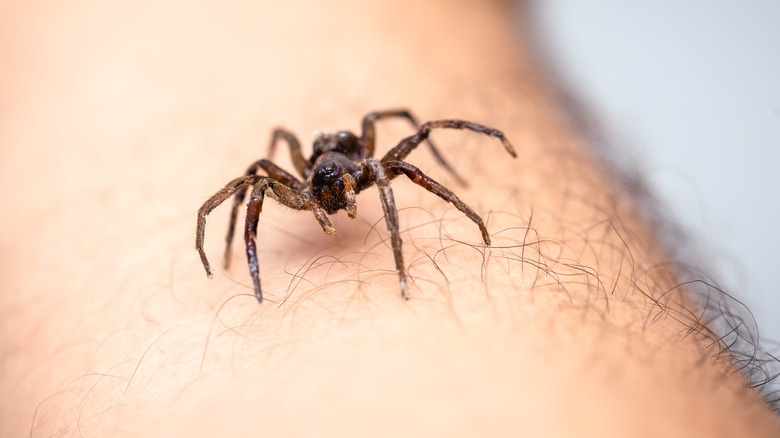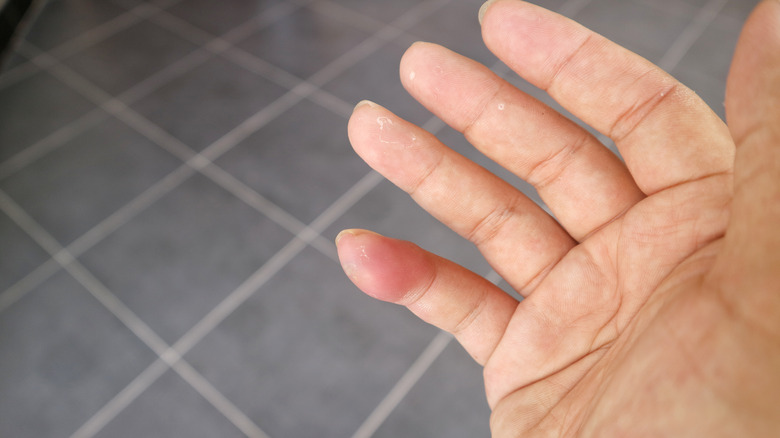Can You Squeeze Venom Out Of A Spider Bite?
While you may have been warned to steer clear of the venomous black widow spider or brown recluse, what you may not know is that all spiders actually produce venom, reports the Cleveland Clinic. Don't let that scare you though! Rather, experts state that most spiders have fangs that are too small to pose any danger to people. "There are a limited number of spiders in the world with fangs strong enough to pierce human skin, and they usually do not bite unless they are crushed between you and another object," explains Dr. Paru Chaudhari, a dermatologist at North Peak Dermatology, to Women's Health. For those who do manage to get bit by one of these eight-legged arachnids, Healthline explains that it most often occurs when one unexpectedly steps on a spider, swipes their hand at it, or accidentally rolls over on one while sleeping.
Unfortunately, many bug bites look alike, so it can be difficult to tell them apart. However, certain types of spider bites may present with two small puncture wounds side by side, according to experts at Women's Health. Spider bites that are accompanied by severe headache, difficulty breathing, and painful muscle cramping warrant prompt emergency care, notes the Cleveland Clinic. Yet spider bites that do not pose a threat to human health can be treated at home. While it's logical to think that your first order of business would be to draw the venom out of a spider bite, experts say never to do so.
What to do and what not to do
Once bitten, do not attempt to squeeze or suck the venom from the skin (via Cleveland Clinic). The same is true for spider bites accompanied by blisters, as squeezing and popping the blisters can increase one's risk for infection (per Women's Health). Rather, mild spider bites should first be treated with warm water and soap to keep the area clean of bacteria, dirt, or venom, explains Healthline. However, be mindful not to wash the area too roughly. "You should thoroughly cleanse the skin, but avoid over-scrubbing or using a harsh soap that can disrupt the skin barrier. The Dove beauty bar is my go-to," suggests Dr. Joshua Zeichner, the director of cosmetic and clinical research and an associate professor of dermatology at Mount Sinai Hospital in New York City, via Women's Health.
Next, apply an ice pack or other cool compress to the bite and elevate the affected body part (via Cleveland Clinic). Antihistamines, hydrocortisone cream, antibiotic ointments, topical analgesics, or over-the-counter (OTC) pain relievers can be helpful in alleviating swelling and discomfort (per Healthline). Lastly, bandage the wound to keep it covered and protected as it heals. If bite symptoms worsen or fail to improve within one to two days, be sure to seek medical care from a doctor. It's possible you may be allergic to the spider venom or may have been bitten by a different kind of spider warranting medical attention.


